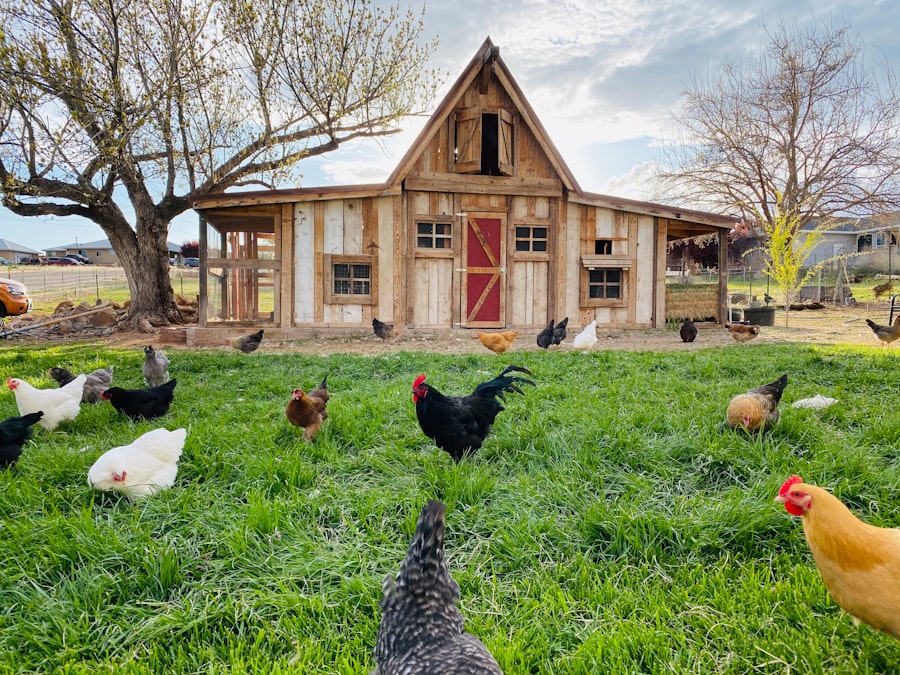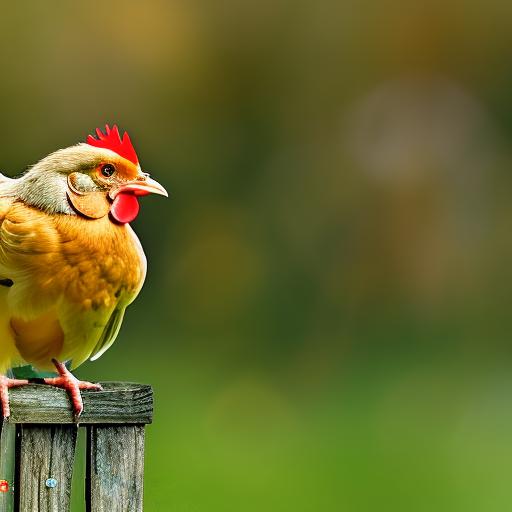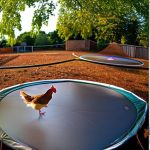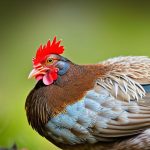Keeping chickens safe and secure is a top priority for any chicken owner. One common challenge that chicken owners face is keeping their chickens from flying over the fence. In this article, we will explore various methods and strategies to prevent chickens from escaping their designated area. By understanding the need to keep chickens from flying over the fence and implementing the right measures, you can ensure the safety and well-being of your flock.
Key Takeaways
- Chickens can fly over fences, which can lead to safety concerns and damage to neighboring properties.
- Assessing the strength and height of your fencing and chicken coop is important to prevent chickens from escaping.
- Making sure your chicken coop is secure with locks and latches can prevent chickens from escaping.
- Trimming the wings of your chickens can limit their ability to fly over the fence.
- Installing netting or wire mesh on top of the fencing can provide an additional barrier to prevent chickens from escaping.
Understanding the Need to Keep Chickens from Flying Over the Fence
Chickens are natural flyers and have the ability to fly short distances. They may attempt to fly over the fence for a variety of reasons. One common reason is their natural instinct to explore and forage for food. Chickens are curious creatures and may be enticed by what lies beyond their designated area. Additionally, chickens may try to escape if they feel threatened or if they are not provided with enough space or resources.
The potential dangers of chickens escaping are numerous. Chickens that fly over the fence are at risk of encountering predators such as dogs, cats, or even larger birds of prey. They may also be exposed to traffic hazards or other environmental dangers. Furthermore, escaped chickens can cause damage to neighboring properties or gardens, leading to potential conflicts with neighbors.
Assessing Your Fencing and Chicken Coop
To prevent chickens from flying over the fence, it is important to assess the strength and security of your fencing and chicken coop. Start by inspecting the condition of your existing fence. Look for any weak spots, gaps, or loose boards that could provide an opportunity for chickens to escape. Repair or reinforce these areas as necessary.
Consider the height of your fence as well. Chickens are capable of flying short distances, so a fence that is too low may not be effective in keeping them contained. Aim for a fence that is at least six feet tall to deter chickens from attempting to fly over it.
In addition to the fence, assess the security of your chicken coop. Make sure that all doors, windows, and vents are securely closed and latched. Check for any holes or gaps in the walls or roof that could allow chickens to escape. Repair or reinforce these areas to ensure that your coop is predator-proof and escape-proof.
Making Sure Your Chicken Coop is Secure
Securing the chicken coop is crucial in preventing chickens from escaping. One effective method is to add locks or latches to all doors and windows. This will prevent chickens from accidentally opening them and escaping. Additionally, consider installing a predator-proof mesh or wire on all openings to keep predators out while allowing for proper ventilation.
It is also important to regularly inspect the perimeter of your chicken coop for any signs of digging or burrowing by predators. Secure the bottom of the coop with wire mesh or bury it underground to prevent predators from gaining access.
Trimming the Wings of Your Chickens
Another method to prevent chickens from flying over the fence is to trim their wings. This is a safe and humane procedure that involves trimming the primary flight feathers on one wing. By trimming only one wing, you disrupt the balance and coordination necessary for flight, effectively grounding your chickens.
To safely trim the wings of your chickens, start by gently restraining the chicken and extending one wing at a time. Identify the primary flight feathers, which are the longest feathers at the end of the wing. Using sharp scissors or poultry shears, trim these feathers by about one-third of their length. Be careful not to cut into the blood feathers, as this can cause bleeding and pain.
Installing Netting or Wire Mesh on Top of the Fencing

Installing netting or wire mesh on top of your fencing can be an effective way to prevent chickens from flying over. This creates a physical barrier that prevents chickens from gaining enough height and distance to fly over the fence. Choose a netting or wire mesh with small enough gaps to prevent chickens from squeezing through.
To install netting or wire mesh, start by securing it to the top of your fence using zip ties or staples. Make sure that it is taut and securely fastened to prevent chickens from pushing it down or squeezing underneath. Trim any excess netting or wire mesh to ensure a neat and tidy appearance.
Using a Chicken Run
A chicken run is an enclosed area that provides chickens with additional space to roam and forage while keeping them contained. Using a chicken run can be an effective way to prevent chickens from flying over the fence. By providing them with a designated area to explore, you can satisfy their natural instincts without the risk of escape.
When building or purchasing a chicken run, make sure that it is secure and predator-proof. Use sturdy materials and reinforce any weak spots. Consider adding a roof or netting on top to prevent chickens from flying out. Provide plenty of enrichment and resources within the chicken run to keep your chickens happy and entertained.
Creating a Barrier Around the Fencing
Creating a barrier around the fencing can further deter chickens from attempting to fly over. This can be done by planting tall shrubs or trees along the perimeter of the fence. The dense foliage will obstruct their view and make it more difficult for them to take off.
Another option is to install a low electric fence or poultry netting around the base of the fence. This creates an additional physical barrier that discourages chickens from attempting to fly over. Make sure to follow safety guidelines when installing an electric fence and regularly check for any damage or malfunctions.
Training Your Chickens to Stay Grounded
Training your chickens to stay on the ground is an important aspect of preventing them from flying over the fence. Start by providing them with ample space, resources, and enrichment within their designated area. This will reduce their desire to explore beyond the fence.
Consistency is key when training chickens. Establish a routine and stick to it. Regularly interact with your chickens, provide them with treats, and reinforce positive behaviors. If you notice any chickens attempting to fly over the fence, gently redirect them back to the ground and discourage the behavior.
Conclusion and Final Thoughts
Keeping chickens safe and secure is essential for their well-being. Preventing chickens from flying over the fence requires a combination of strategies, including assessing your fencing and chicken coop, securing the chicken coop, trimming the wings of your chickens, installing netting or wire mesh on top of the fencing, using a chicken run, creating a barrier around the fencing, and training your chickens to stay grounded.
By implementing these measures, you can ensure that your chickens remain safe and contained within their designated area. Remember to regularly inspect and maintain your fencing and chicken coop to address any potential weak spots or damage. With proper care and attention, you can enjoy the benefits of raising chickens while keeping them safe from harm.
If you’re looking for more information on how to keep chickens from flying over the fence, you might also be interested in this article on Poultry Wizard about the mating season for turkeys. Understanding the behavior and needs of different poultry species can help you create a secure and suitable environment for your flock. Check out their article here to learn more. Additionally, Poultry Wizard provides valuable insights into various aspects of chicken keeping, such as the importance of the floor in a chicken coop. Discover their article on the topic here. Lastly, if you’re curious about whether geese can eat chicken feed, Poultry Wizard has an informative article that addresses this question. Find out more here.
FAQs
What is the problem with chickens flying over fences?
Chickens that fly over fences can cause damage to neighboring properties, get lost or injured, and may even be attacked by predators.
Why do chickens fly over fences?
Chickens are natural flyers and can fly up to six feet in the air. They may fly over fences to explore new areas, escape predators, or to find food.
What are some ways to prevent chickens from flying over fences?
Some ways to prevent chickens from flying over fences include clipping their wings, installing netting or wire over the top of the fence, and providing enough space and entertainment within their enclosure to discourage them from wanting to fly out.
How do you clip a chicken’s wings?
To clip a chicken’s wings, you need to trim the primary feathers on one wing. This will make the chicken unbalanced and unable to fly. It is important to only clip the primary feathers and not the secondary feathers, as this can cause pain and bleeding.
Is it safe to install netting or wire over the top of a fence?
Yes, it is safe to install netting or wire over the top of a fence as long as it is properly secured and does not pose a hazard to the chickens. It is important to regularly check the netting or wire for any damage or wear and tear.
What are some other benefits of keeping chickens in an enclosed area?
Keeping chickens in an enclosed area can protect them from predators, provide a controlled environment for feeding and watering, and make it easier to collect eggs and clean up after them. It also helps to prevent the spread of diseases and parasites.
Meet Walter, the feathered-friend fanatic of Florida! Nestled in the sunshine state, Walter struts through life with his feathered companions, clucking his way to happiness. With a coop that’s fancier than a five-star hotel, he’s the Don Juan of the chicken world. When he’s not teaching his hens to do the cha-cha, you’ll find him in a heated debate with his prized rooster, Sir Clucks-a-Lot. Walter’s poultry passion is no yolk; he’s the sunny-side-up guy you never knew you needed in your flock of friends!







